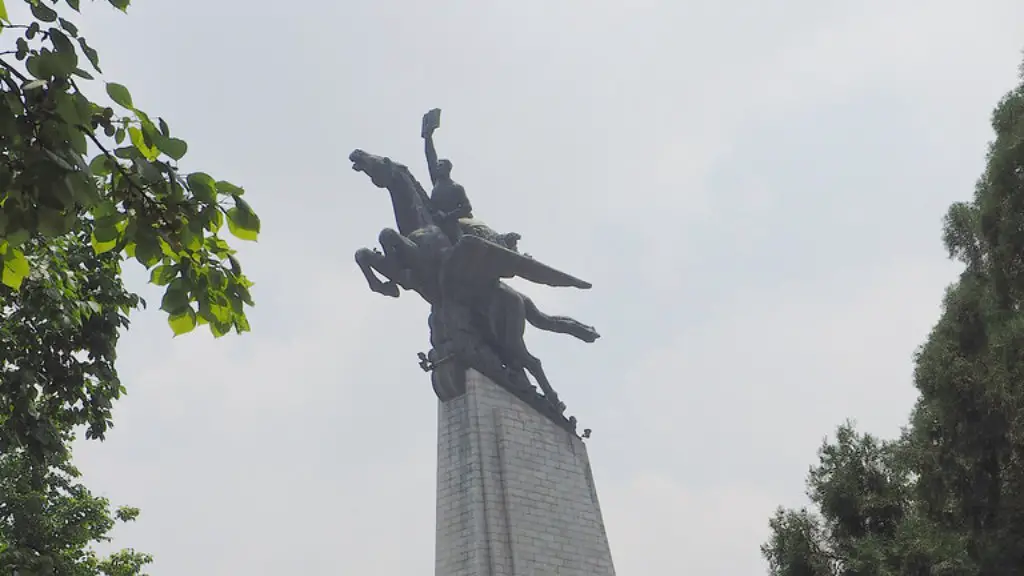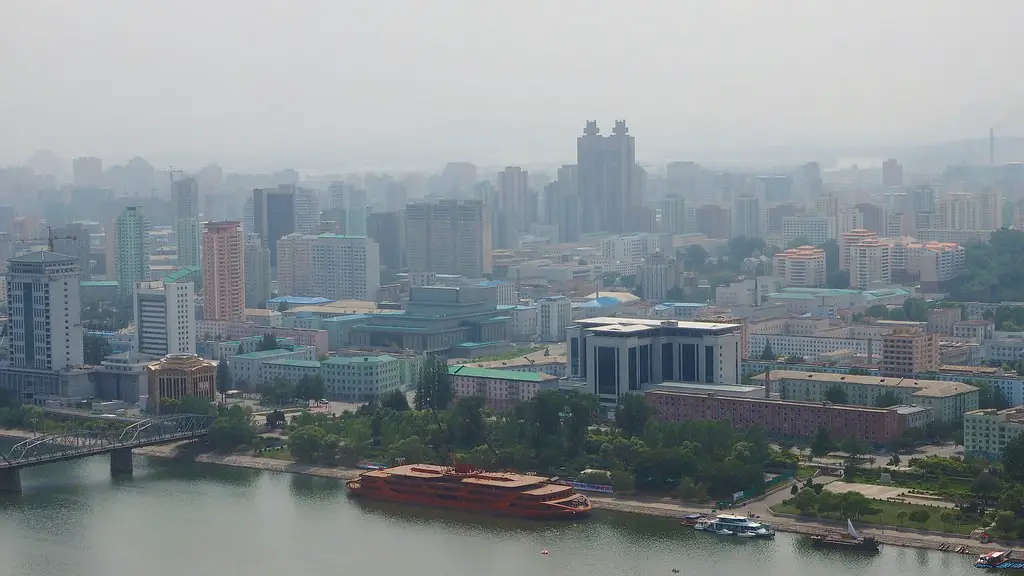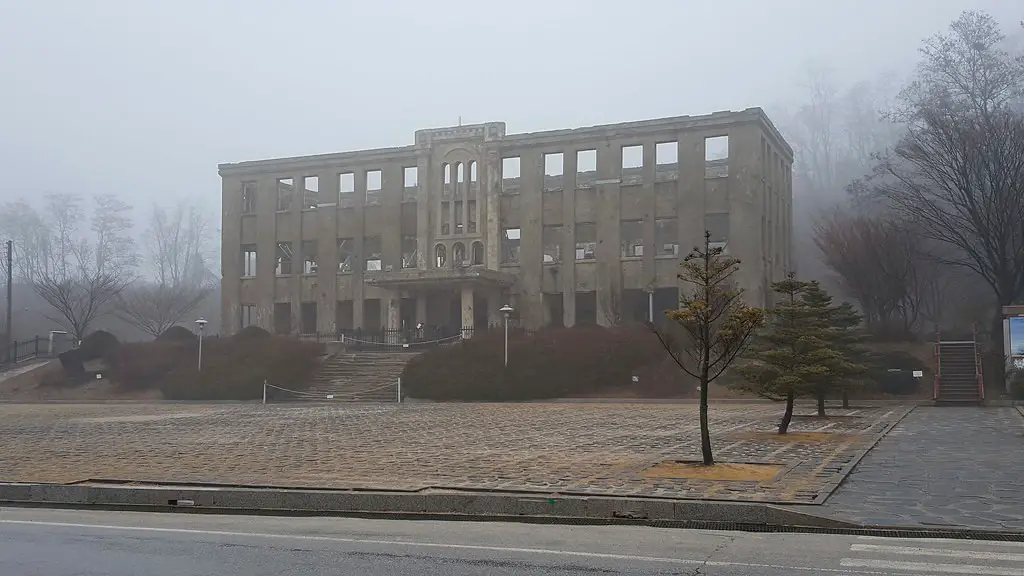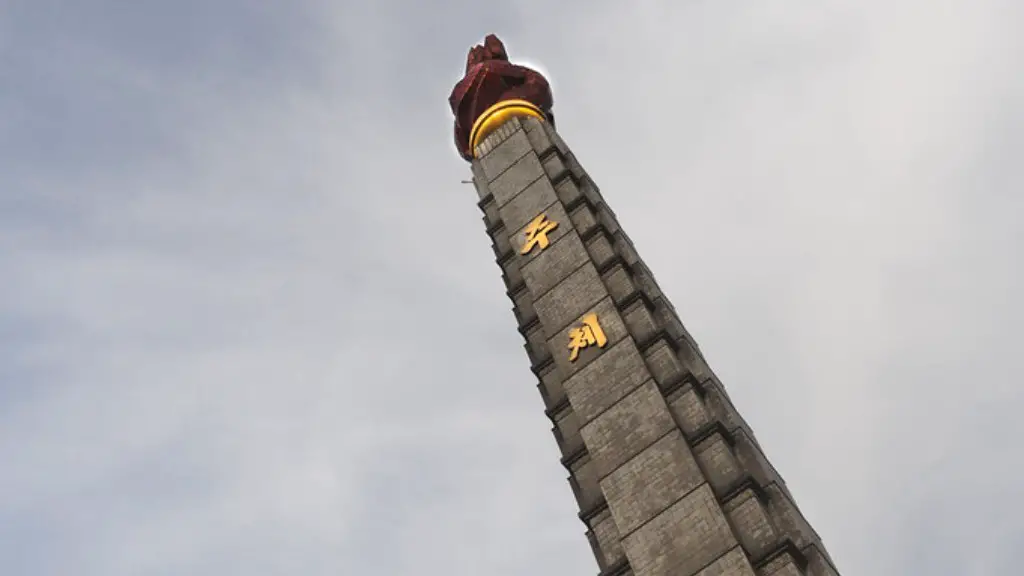As tensions between North and South Korea continue to fester, the world is wondering, What will we do with North Korea?. North Korea has become a bit of a nihilistic black box; with its closed off borders, it’s hard to accurately gauge what is going on behind the scenes. The North Korean government is run by a relatively young leader, Kim Jong-un, who has made it known that he intends to maintain a hard line government with a tight grip on the people and their actions.
In the past six years, Jong-un has been in power Pyongyang has test launched multiple missiles, has accelerated its nuclear program, and has severed almost all ties with the outside world, creating an almost impenetrable curtain around its borders. This has other nations, such as the U.S., in a tough spot when it comes to dealing with the North Korean crisis. The U.S. supports a policy of “maximum pressure” and sanctions, attempting to use economic hardship as a way to keep North Korea in check.
However, despite this pressure, North Korea has continued to advance its nuclear program and has become increasingly belligerent toward its neighbor, South Korea. This has prompted the international community to wonder if there are any other options than relying on sanctions alone. Some experts have advocated for a more direct approach, involving peace talks and possible diplomatic gestures.
One potential option is engaging in dialogue with North Korea, so as to gain insight into their motivations and demands. By establishing a dialogue, it would become possible to outline a plan of action that could potentially defuse the situation. The U.S. and other interested parties could use this dialogue to probe the minds of the North Korean leadership and try to get a better idea of what they are hoping to achieve. This could provide a path for a more peaceful resolution to the crisis.
Another option is to provide economic incentives to North Korea to entice them to stop their more aggressive posturing. This could involve providing certain economic benefits, such as assistance with infrastructure or other economic development assistance, in exchange for North Korea agreeing to certain concessions. This could allow the international community to diplomatically coax North Korea into a more cooperative stance.
Finally, there is the option of direct action, such as military intervention. This option is a last resort, as it could very easily lead to a full-blown conflict, which would have catastrophic consequences for the region. This is why experts have cautioned against this option, no matter how attractive it may appear to be.
Dialogue with North Korea
It is important to remember that dialogue is the most likely way to diffuse the situation without resorting to direct military action. Organizations such as the United Nations have been engaging in diplomatic dialogue with North Korea for years, attempting to reach an agreement that would satisfy both sides. It is possible that, with enough pressure, the North Korean government may be willing to come to the table and negotiate an agreement.
Dialogue between nations can be difficult, however. North Korea, for example, is known for its tendency to delay and obfuscate during talks. This can make it difficult to establish a plan of action that satisfies both sides. However, with enough persistence and patience, it is possible to craft a deal that works for both parties involved.
It is important to note that, if the international community is to successfully negotiate a deal with North Korea, it cannot simply rely on the United States’ efforts alone. North Korea has a long history of distrust towards the U.S., and it is likely unwilling to take any deal that solely includes the U.S. North Korea would likely be more receptive to a deal that includes other interested parties, such as South Korea, Japan, and China, who have a long-standing relationship with North Korea.
Economic Incentives
Economic incentives are a potential option for encouraging North Korea to cooperate with the international community. However, there are several caveats to this approach. First, it is important to ensure that any economic benefits provided to North Korea are actually used for the benefit of the people rather than for the enrichment of the ruling elite. Otherwise, it can be seen as an endorsement of North Korea’s authoritarian rule.
Second, any economic benefits should come with the stipulation that North Korea conforms to certain international standards, such as respecting human rights and adhering to international law. This would ensure that any incentives provided are not perceived as a reward for oppressive behavior.
Finally, it is important to bear in mind that even with economic incentives, North Korea may still be unwilling to cooperate. The North Korean government is notoriously belligerent and unpredictable, and it is difficult to predict how it will respond to any given situation. As such, the international community should be prepared to take a more direct approach if necessary.
Direct Action
Direct military action should be the last resort for dealing with the North Korean crisis. It is important to understand that any military action would run the risk of escalating into a full-scale conflict, which would have disastrous ramifications for the region. Many experts have cautioned against this approach, arguing that it could easily spiral out of control and lead to catastrophic consequences.
Therefore, any direct military action should only be taken after every other avenue has been exhausted. Additionally, if direct action is taken, it should be with the full support of the international community, rather than a select few nations. This would ensure that the action is seen as legitimate and that the repercussions are minimized.
Economic Sanctions
Sanctions are an option that has been employed by many countries in an attempt to exert economic pressure on North Korea and force it to cooperate. Sanctions are intended to make it difficult for North Korea to access the resources it needs to continue its nuclear weapons program, as well as cut off its ties with international organizations, such as the UN.
However, it is important to note that sanctions alone may not be enough to cause a shift in North Korea’s behavior. In the past, North Korea has been able to find ways to circumvent the economic consequences of sanctions, such as through smuggling and illicit trade. As such, there is a risk that sanctions may not be effective in creating the desired outcome.
International Efforts
Ultimately, it is important to remember that North Korea is not an isolated issue. This is a crisis that has consequences that extend beyond North Korea’s borders, making it imperative that the international community works together to find a solution. International organizations, such as the United Nations and NATO, should work in coordination with countries in the region, such as China, South Korea, and Japan, as well as the United States to establish a unified plan of action.
It is also important to bear in mind that the solutions to the North Korean crisis must come with an understanding of the North Korean perspective. North Korea’s leaders must be taken seriously and respected, or else the international community risks alienating them and pushing them further into belligerence.
The international community must also be aware that North Korea is an issue with wide-reaching consequences. It is important to understand that any action taken has potential implications for the entire region, and should be taken with that in mind.




